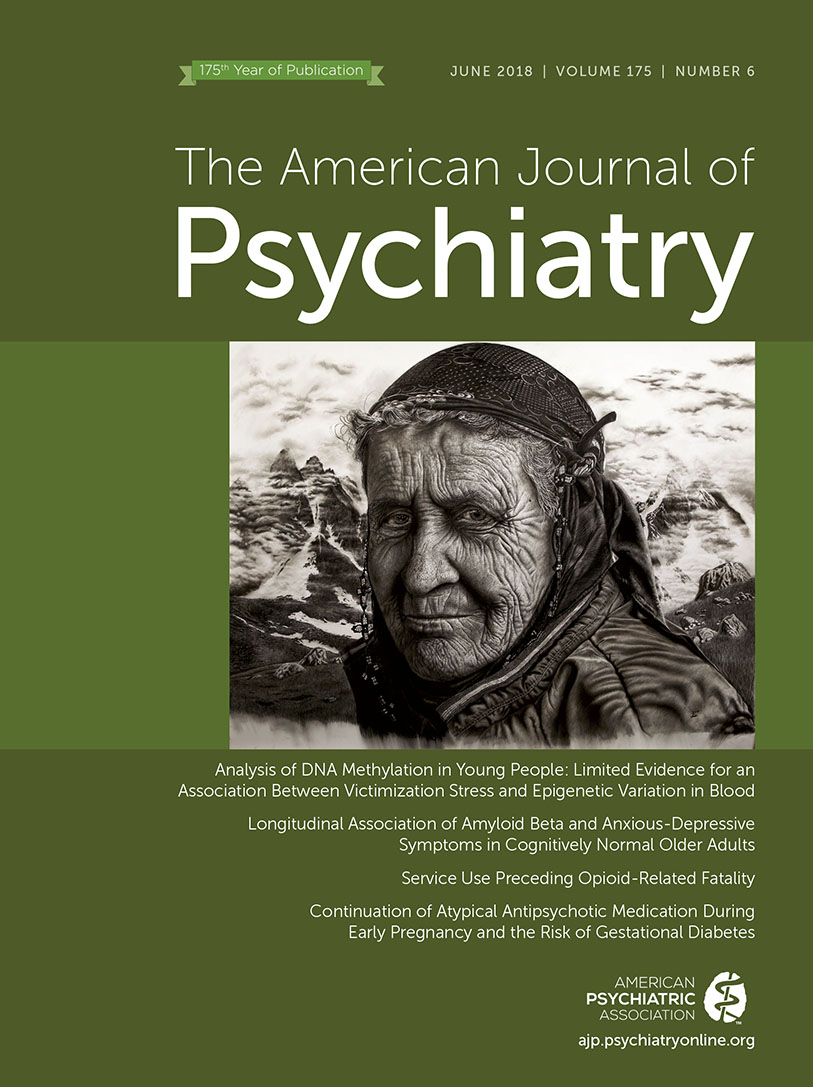Anxiety About Antidepressants
A recent front-page New York Times article (1) reframed a mental health success story into a conspiracy theory. The article, titled “Many People Taking Antidepressants Discover They Cannot Quit,” presents public health population-level data indicating that, indeed, many people are taking antidepressants. Many researchers interpret this as indicating progress in the successful diagnosis and treatment of depression—and in particular, compliance with quality guidelines that emphasize treatment trials of adequate duration. However, the article instead juxtaposes these population data with anecdotes and small descriptive studies of individuals who have had difficulty discontinuing treatment. The argument moves from ecological fallacy to conspiracy when it implies that the paucity of longer-term data is by design. Mostly unspoken in the article is the sense that it can’t be good for all of these people to be taking these medications long term … can it?
Ironically, the Times article appeared only a week after a meta-analysis published by Cipriani and colleagues (2) demonstrated, once again, this time based on data on more than 100,000 individuals, that antidepressants are generally similar to one another in efficacy and are consistently superior to placebo. Yet media accounts still routinely treat antidepressant efficacy as an open question and toxicity as a near certainty.
Psychiatrists may therefore be forgiven for indulging the temptation to try to understand this societal ambivalence, notable throughout the article. We are told that antidepressants were originally considered “enough to get through a crisis, and no more.” We read that “every other person is depressed and on medication,” while patients maintained on antidepressants report “creeping unease” about “daily pill-popping.” None of these remarks will surprise clinicians—the same criticism of medication treatment of depression has been voiced for decades. The latent assumption is that pharmacotherapy represents a shortcut, an avoidance of doing real work. Our colleague Peter Kramer described it in 1993 as “pharmacological Calvinism” (a term he credits to Gerald Klerman, from two decades earlier), which represents “a general distrust of drugs used for non-therapeutic purposes and a conviction that if a drug makes you feel good it must be morally bad” (3).
The informative analogy might be treatment of type 2 diabetes. While diet and exercise have a substantial impact on disease course (notably, results far more compelling than those in depression), it is hard to envision front-page articles in the New York Times about the dangers of long-term diabetes treatment. Instead, this article invites readers to make fallacious jumps connecting islands of truth in pursuit of a titillating, and stigma-perpetuating, theory: psychiatric disease and the suffering it brings are a failing of character best addressed through clean living or perhaps cleansed with redemptive suffering.
Factually, as the article acknowledges, withdrawal syndromes have been recognized from the beginning of the modern psychopharmacologic era. For this reason, slow, systematic tapers—when necessary, incorporating longer half-life antidepressants—represent a standard of care. And many clinicians will recognize in their practice some of the phenomena noted in the article, such as patients requiring very long tapers of medications. Clinicians will also recognize that in some cases, such symptoms actually represent recurrence of depressive, anxious, and somatic symptoms—the indication for treatment in the first place. That patients are able to sustain long-term treatment is testament to half a century of work on tolerability.
The article is also undeniably correct that we know far too little about long-term consequences of antidepressants—and nearly every medication in common use in medicine. That antidepressants are singled out may reflect a unique degree of discomfort with medications that affect the brain, but the big picture reminds us that all medications have off-target or longer-term impact that cannot be captured in the regulatory approval process. Instead, this falls to the systems for postmarketing surveillance (in the United States, the Food and Drug Administration’s Adverse Event Reporting System), which in turn rely on voluntary reporting by clinicians. As such, each of us can help contribute to the knowledge we all need.
With the rise of large-scale electronic health records, health registries, and biobanks, we are better positioned than ever before to investigate long-term effects of antidepressants on health. While some surveillance efforts are already in place, they tend to focus on severe, shorter-term effects. More investment in understanding effects that may be more subtle and require more chronic exposure would be most welcome by patients, families, clinicians, and researchers. As usual, the challenging question is who should pay for such studies. As psychiatrists, part of our responsibility is advocating on behalf of our patients. Here, this entails pushing for expanded data gathering so that we can better inform patients and families about both long-term benefits and long-term risks.
In short, the New York Times article buried the lead: the extent to which treatment of depression—whether pharmacologic, psychotherapeutic, or some combination—can truly change lives for the better. The increasing number of people receiving standard depression treatments in the United States represents the success of a substantial public health effort. Anything that stands in the way of people seeking treatment requires that we speak up and try to address both the cognitive and affective biases that may prevent effective treatment. We as psychiatrists do need more data, and we need to work harder to understand the reasons that depression treatments still provoke so much anxiety.
1 Carey B, Gebeloff R: Many people taking antidepressants discover they cannot quit. New York Times, April 7, 2018, p A1Google Scholar
2 : Comparative efficacy and acceptability of 21 antidepressant drugs for the acute treatment of adults with major depressive disorder: a systematic review and network meta-analysis. Lancet 2018; 391:1357–1366Crossref, Medline, Google Scholar
3 : Listening to Prozac. New York, Viking, 1993Google Scholar



